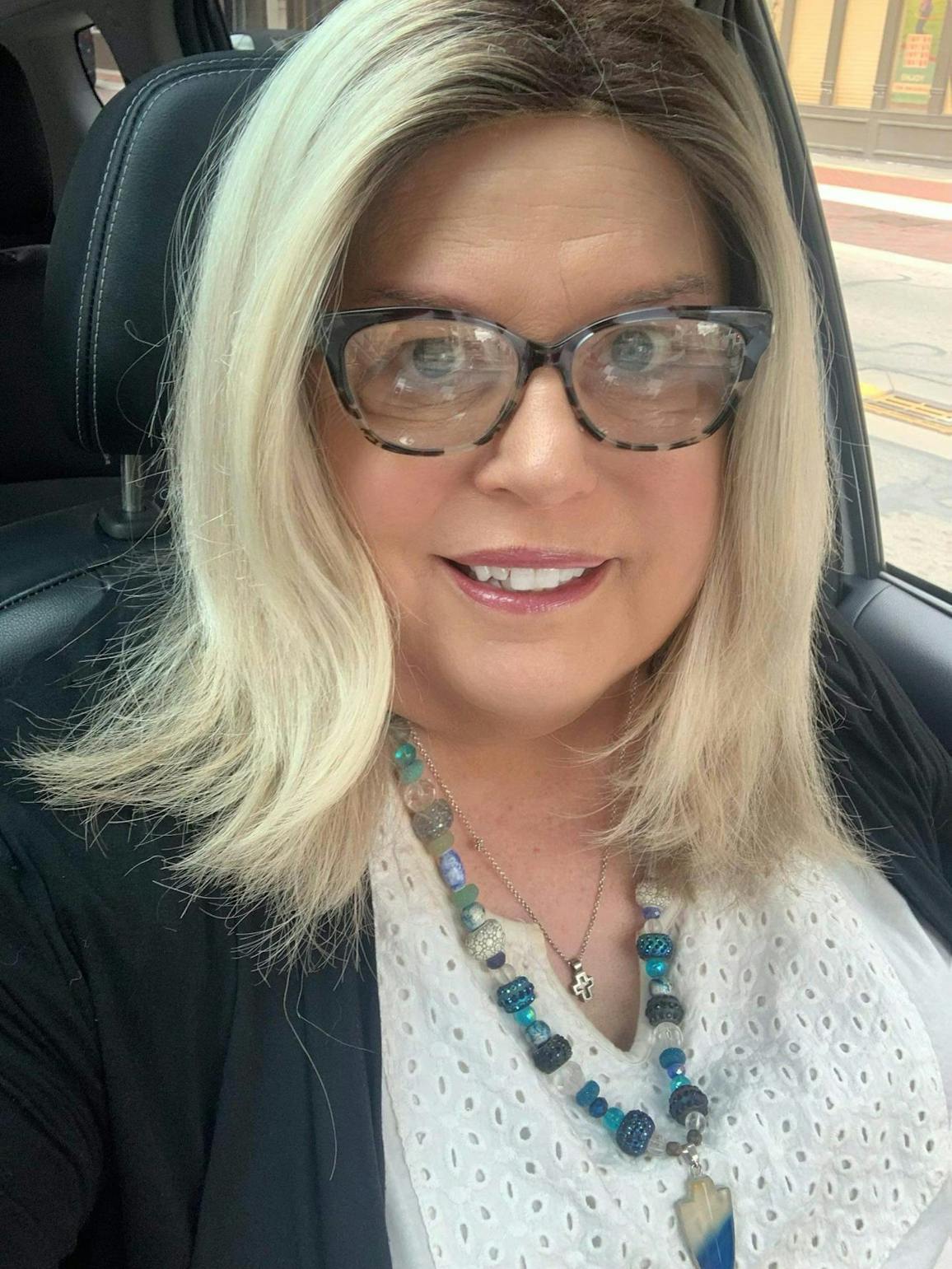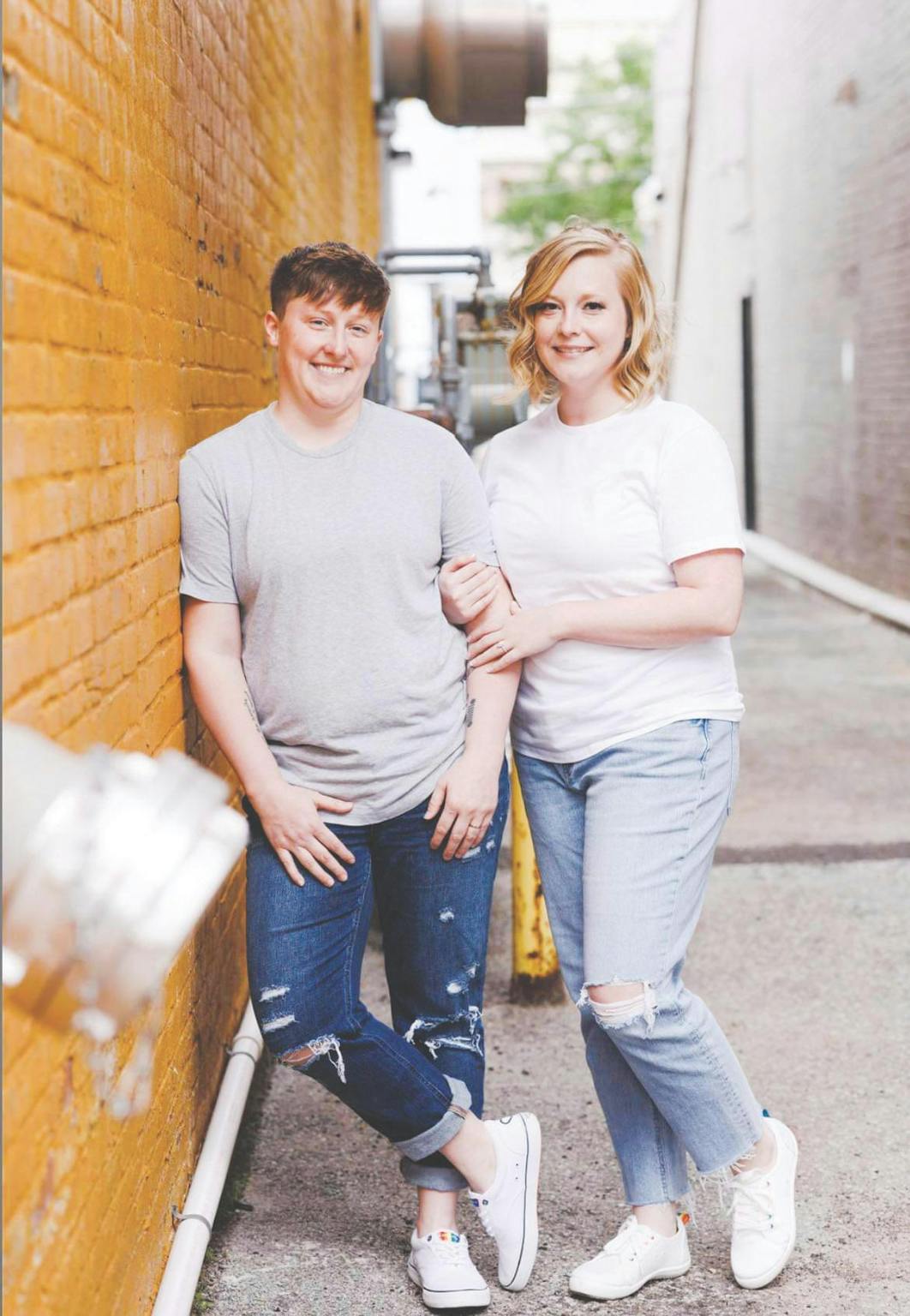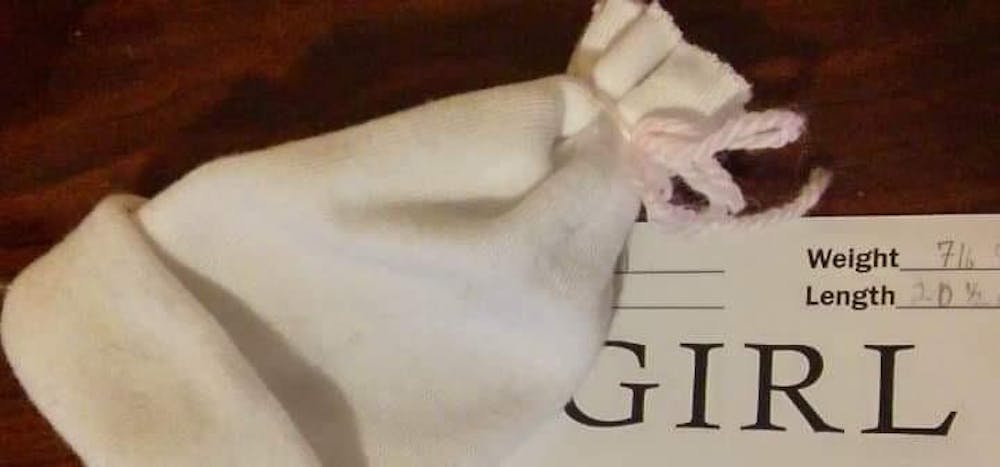Courtney Greyhawk always wanted to be a mother, yet she was taking all the steps to avoid a pregnancy with her former partner.
She was taking birth control, and they were using condoms. But even with those precautions, Greyhawk found out she was pregnant.
In 2009, Greyhawk was in her fourth year at Ball State University, majoring in biochemistry. She found out at the Ball State Health Center and called her partner before taking an exam.
“I remember being like, ‘I can't think right now, I just have to do this test,’” Greyhawk said.
The couple was pulled in different directions as the two realized they had three options: become parents, abort the pregnancy or put their child up for adoption.
Greyhawk wanted to keep the baby, noting abortion was not something she felt comfortable doing at that time of her life. She was faced with the reality of being young and in college, unable to raise the child on her own.
As a result, the couple turned to adoption.
A few months later, Greyhawk and her boyfriend had yet to officially notify the adoption agencies they were interested in, citing that they didn’t want to let anyone know too soon in case they lost the baby.
Then, before spring semester finals week, Greyhawk and her friends were discussing life and classes. A friend of a friend had just broken up with his boyfriend.
“He's like, ‘I'm never going to have that white picket fence and a family and a partner,’” Greyhawk said. “I definitely read that as, ‘I'm never gonna find my love,’ and he's like, ‘No kiddo, you don't get it? ... I'm a gay man. Nobody wants to give us a baby.’”
That resonated with Greyhawk. As she and her boyfriend started to consider adoption candidates, she knew she wanted her baby to be adopted by a gay couple.
“It's much harder for [gay men] to adopt, and selfishly, I would always be the baby's mom,” Greyhawk said. “To be very selfish, I wouldn't have to give that up. I wouldn't get to keep the baby, but I would still always be there — the only mom.”
Greyhawk also said a reason for her decision to adopt with gay men rather than gay women is based on her knowledge that gay women often have an easier time finding an affordable way to have a baby.
Greyhawk began to sort through potential adopting couples. She was in hopes for an open adoption — one that would let her still connect with her daughter — despite her not having rights as a parent.
“Adoption isn’t ‘OK, you have the baby it’s over,’ it’s an 18-year commitment like raising a child,” Greyhawk said.“You just have no say in the decisions — you’re watching from the sidelines.”
The Lifelong Dream
Charlize Jamieson is no stranger to the lifelong commitment of raising children.
Jamieson has three adult children of her own. The biggest achievement of her parenting was knowing she raised them right when she started to publicly transition and come out to loved ones as transgender in her early 60s.
Jamieson said she always knew she was transgender but said the “different time” she grew up in kept her in the closet for more than 60 years.
“You just didn't talk about things like [being transgender]. You'd be institutionalized,” Jamieson said. “You just kept it quiet, and I thought, ‘I'm just gonna take this my little secret to the grave, and I won't tell anybody ever,’ [but] you can't hide something like that.”
The fear of coming out, especially after holding such a vulnerable secret for so long, was very real for Jamieson.
“I thought it would be nothing but disaster because I know a lot of people here in town, and I said, ‘I'm going to lose friends and respect and family,’ and I haven't lost anything,” she said.
Jamieson said telling her kids was one of the scariest parts of coming out, but she was pleasantly surprised and proud of their reactions.
While Jamieson had her children in a straight-passing relationship at the time, she noted the importance of adoption. She, herself, was adopted, but with their current identity, the importance of LGBTQ+ individuals having access to adoption is even more important.
“There's absolutely no reason lesbians can’t be great parents or two gay men can’t be great parents,” Jamieson said.

The Dream in Progress
Greyhawk found a couple who provided the open adoption relationship she was looking for and began connecting with them online through the adoption agency.
The couple welcomed Greyhawk and her boyfriend with open arms, allowing them to be a part of the parenting process.
They even let Greyhawk pick out the middle name of the child.
The adoptive fathers threw a baby shower for them all, something Greyhawk noted was not recommended by the adoption agency due to the potential of creating “false hope” in the couple and their families.
Regardless, it was something the couple wanted to celebrate together because of how much they cared for Greyhawk.
They also financially supported Greyhawk during the pregnancy. At the time, she was working night shifts at McDonald's in addition to her school work. She said the financial support was for both her and the baby’s well-being.
Greyhawk said the love and gratitude received by the adoptive family was immense. The sister of one of the fathers even gave her a square from a baby blanket she crocheted.
Greyhawk still has all of the sentiment in a special box where she holds keepsakes from her daughter.
Greyhawk’s daughter was born October 31 in the late 2000s after she went into early labor on her way to Cooper Science Building. She’d attended a campus Halloween party that same evening dressed as Mother Earth before heading to the hospital and giving birth later that night.
Before signing adoption paperwork, participating families are separated for the night and part of the next day to give the birth mother any opportunity to change her mind, Greyhawk said.
“I’m holding this beautiful baby, and I'm thinking, ‘How could I let this go?’ I’ve got these beautiful people who are going to be beautiful parents, [but] how do I let this go?’” Greyhawk said.
That night, the baby started fussing. Greyhawk just went through a long and painful labor that ended with 65 stitches. She was a tired college student. She was unable to nurse her child, and she couldn’t get up to hold her. Her boyfriend got up and left to sleep elsewhere.
“Here I am in so much pain I can’t walk and alone in this hospital room at night,” Greyhawk said. “This is why I’m [choosing adoption]. I can’t do this alone … There will be two of them … and they have wanted to be parents for so long.”
There was a two-week period when the baby couldn’t leave Indiana to go to the adoptive father’s home state. While they stayed with the baby in a hotel room, Greyhawk went back to class.
“I felt hollow,” Greyhawk said. “When you have a baby inside of you, you feel warm. You’re carrying a furnace on your tummy. It was the beginning of November, and I just remember feeling so cold.”
When the paperwork was settled, the father notified Greyhawk it was time for her child to leave Indiana. Greyhawk and a friend went to the hotel to say their goodbyes.
“Maybe, someday, I’ll get to have kids of my own,” Greyhawk said. “This was my dream deferred and their dream realized.”
The Dream In Motion
Shaylee Vice and Sam Grim have been married since December 2022. The two recently began seeking medical insemination treatment after a miscarriage from trying at-home insemination.
“I want that experience of birthing my own,” Vice said. “ Sam, specifically, she's wanted children but not to carry.”
After discovering the cost of medical insemination and fertility treatments was similar to the cost of at-home treatments, they began to seek medical fertility treatments.
According to Bundl Fertility, the average cost of In vitro fertilization (IVF) in Indiana can range from $12,000 to $15,000. According to the National Infertility Association, Indiana does not have insurance coverage for IVF treatments, however, some private insurance companies like Anthem Blue Cross Blue Shield or UnitedHealthcare offer variations of coverage for IVF treatments, according to Midwest Fertility.
“Families all look very different. Some families have a mom and no dad or a dad and a mom … It's all different, and it's okay,” Vice said.

The Dream in Reality
Greyhawk said her family looks different than most. She is still in very close touch with her daughter and her fathers. She visits at least once a year and still gets Mother’s Day crafts made in elementary school.
Greyhawk is still called “Mom.”
For aspiring parents like Vice and Grim, the “village” of support for their hoped-for baby is the most important thing.
“Yeah, they're gonna have two moms, but there are masculine-presenting [and] masculine-identifying people in our family and our friends that they are going to be around,” Vice said.
Growing up in a world full of hate is one Vice said is a reality for kids, especially kids who are members of the LGBTQ+ community or have family members who are.
However, Vice pointed out that this is not any reason to prevent LGBTQ+ families from having kids.
According to research from a team at the University of Kentucky, LGBTQ+ parents “demonstrate flexibility, creativity, and intentionality,” all of which are related to a child’s resilience and positive outcomes.
Additionally, the study does point out that children of LGBTQ+ parents may face more teasing or bullying, however, “they involve or confer unique benefits or skills that cultivate resilience,” according to the study.
“We always say, ‘Do no harm, but take no shit,’” Vice said. “Our children will learn [to] hate from the world. We will not even teach them to hate individuals who are homophobic because we don't teach hate.”
Contact Olivia Ground via email at olivia.ground@bsu.edu or on X @liv_ground_25.





